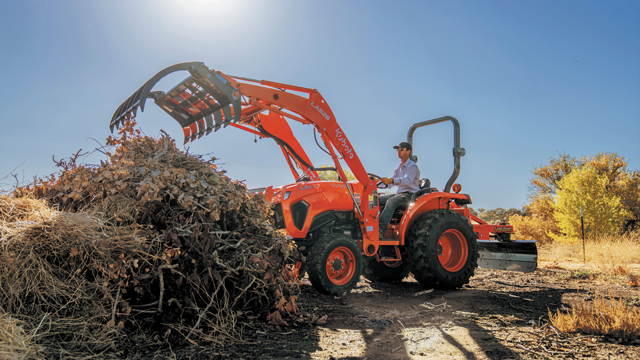Usage Tips: How to Start a Tractor in the Winter
Facing the Challenges of Cold Weather Tractor Use
Winter presents unique challenges for tractor owners, particularly when it comes to starting machines in freezing temperatures. Cold weather can take a toll on tractor engines and batteries, making it difficult to get the machine running smoothly. Proper winter maintenance and the use of specific starting techniques are key to ensuring reliable tractor operation during the colder months.
Understanding Cold Weather Challenges for Tractors
Cold temperatures can affect a tractor’s engine and battery in several ways. In frigid weather, the engine oil thickens, making it harder for the engine to turn over. Batteries also lose capacity as temperatures drop, meaning they might not have the power to start the engine. These are common issues that many tractor owners face when trying to get their equipment running in winter. Tractors that have been tested for cold weather performance tend to handle these conditions better, making them more reliable in harsh climates.
Preparing Your Tractor for Winter
Before the cold sets in, it’s important to take steps to winterize your tractor. Pre-winter maintenance checks can help prevent problems when the temperature drops. Key steps include:
- Checking Antifreeze Levels: Ensure that your engine coolant has the appropriate amount of antifreeze to protect the engine from freezing.
- Battery Health: Check your battery’s charge and, if necessary, replace it before winter starts. Cold weather can reduce battery performance, so starting with a strong battery is essential.
- Fuel Preparation: Use winter-grade fuel or add a fuel conditioner to prevent gelling in freezing conditions.
By preparing your tractor in advance, you can minimize the risk of winter-related issues and ensure it’s ready for cold weather use.
How to Start a Tractor in Cold Weather
Starting a tractor in the winter can be more challenging than in warmer months, but following a few specific steps can make the process easier:
- Ensure the Battery is Fully Charged: Cold temperatures reduce battery power, so it’s important to have a fully charged battery.
- Use a Block Heater if Available: A block heater warms the engine block and oil, making it easier to start the tractor in freezing temperatures.
- Allow Glow Plugs to Heat Properly: If your tractor is equipped with glow plugs, wait for them to heat up fully before attempting to start the engine.
- Crank the Engine and Run at Low Idle: Once started, let the engine run at a low idle for a few minutes to allow the oil to circulate and warm up.
- Preventative Measures: Use winter-grade fuel and keep the fuel tank full to reduce the chance of condensation freezing inside the tank.
These steps can help ensure a smoother start and prevent common cold weather starting issues.
Essential Winter Accessories for Tractors
Using the right winter accessories can make a significant difference in your tractor’s performance during winter. Accessories like block heaters, battery warmers, and winter-grade engine oil help improve cold-starting reliability. These accessories are designed to protect your engine from the harsh effects of cold weather, and choosing the right ones for your tractor model is crucial for optimal performance.
Troubleshooting Common Winter Starting Issues
Even with proper preparation, you might still encounter some challenges when starting a tractor in extreme cold. Common issues include:
- Weak Battery: If the tractor won’t start or struggles to crank, the battery may be too weak. Try charging it or replacing it if necessary.
- Fuel Problems: If the engine turns over but doesn’t start, there may be an issue with the fuel, such as gelling in the lines. Use a fuel additive to prevent this.
- Cold Engine Oil: If the engine cranks very slowly, the oil may be too thick due to the cold. A block heater can help prevent this by warming the engine block.
If these solutions don’t resolve the issue, it may be time to seek professional maintenance or repair. Contact a reputable dealer for expert assistance and support.
Long-Term Winter Care Tips
To ensure ongoing reliability throughout the winter, regular maintenance is essential. Keep an eye on your tractor’s fluids, battery, and fuel throughout the season, and store the machine properly during extended periods of inactivity. Draining fuel lines, maintaining tire pressure, and keeping the tractor in a sheltered area can help protect it from winter’s harsh conditions.
Reliable Winter Tractor Performance
Starting a tractor in winter requires preparation and the use of proper techniques. By following winter maintenance steps and using essential accessories, you can keep your tractor running smoothly in cold weather. Making sure your tractor is winter-ready will not only save time but also extend its lifespan by protecting it from the challenges that winter presents.



